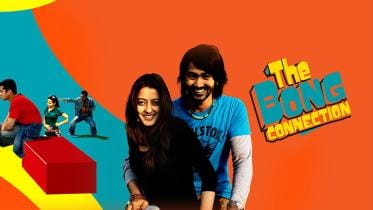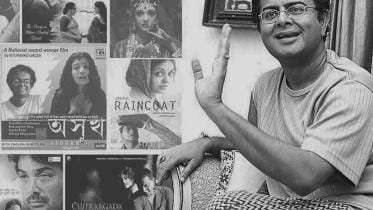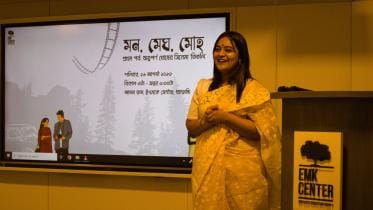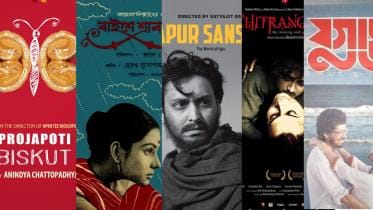rituparno ghosh
‘The Bong Connection’: Tracing identity in a globalised world
When “The Bong Connection”, directed by Anjan Dutt, was released in 2006, legendary director Rituparno Ghosh called actor Parambrata Chatterjee and told him that he could never make a film like that. What was so special about the movie that Rituparno himself was envious of the creation?
22 November 2024, 04:05 AM
A queer gaze: How Rituparno Ghosh flipped the script on female characters
In the landscape of South Asian cinema, where women have long been confined to roles of self-sacrificing mothers or objectified love interests, the films of Rituparno Ghosh emerge as a powerful counternarrative. Ghosh, one of Bengal's most acclaimed contemporary directors, crafted a body of work that challenges stereotypes and redefines the portrayal of women on screen. I try to explore his unique approach here, examining how his films subvert traditional narratives and offer a nuanced, feminist perspective on South Asian womanhood.
31 August 2024, 13:10 PM
Weaving untold stories through cinema
Considered one of the most important figures in Bengalee cinema, Rituparno pioneered an era of inclusivity and art.
31 August 2023, 09:39 AM
Rituparno’s lens: Masterful storytelling and conversations on human relationships
Rituparno Ghosh was not only a master of capturing the complexities of human relationships but also had an uncanny knack for portraying table conversations with a depth that is rare in cinema.
31 August 2023, 09:22 AM
‘Mon, Megh, Moho’: Film appreciation event held at EMK centre
For Dhaka's urban populace, it was more than a mere gathering; creating an essential space for communal introspection.
27 August 2023, 11:40 AM
A decade without Rituparno Ghosh
Their films challenged societal taboos and questioned traditional norms, often exploring themes that were considered unconventional.
30 May 2023, 11:13 AM
Five Bangla films that show what love is
This Valentine's Day, grab a cup of tea and your loved one and immerse in the movies suggested below.
14 February 2023, 11:56 AM






